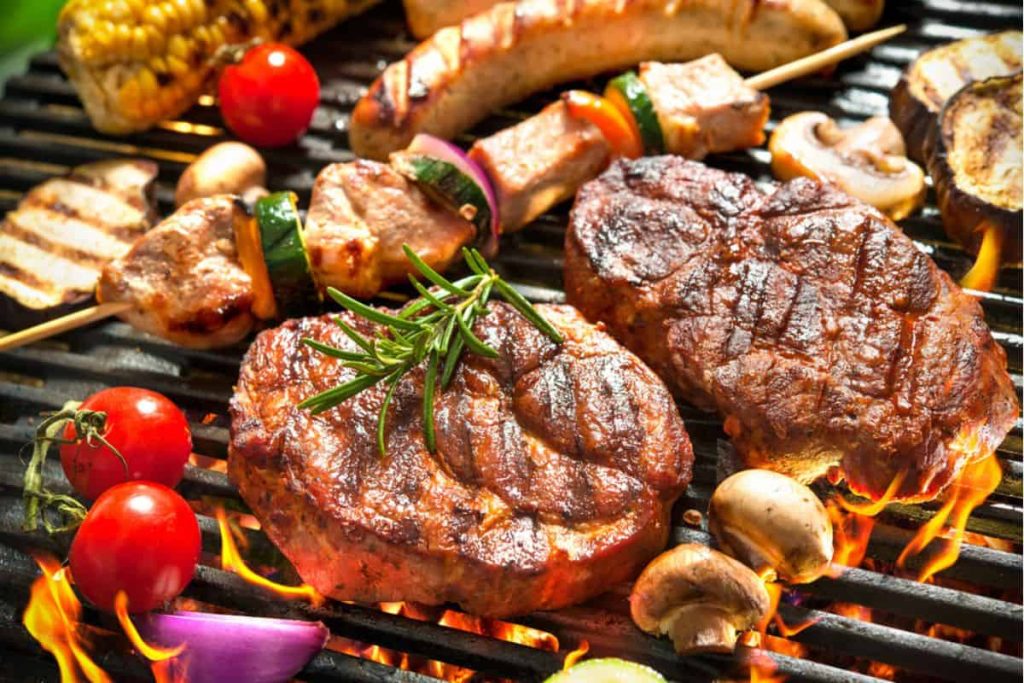Grilling and similar other high temperature methods of cooking meat can result in formation of heterocyclic amines (HCAs) and polycyclic aromatic hydrocarbon (PAHs). HCAs are a type of nitrogen-containing compound formed while cooking protein rich items like meat. Studies found that higher levels of these HCAs are seen in charred parts of grilled meat or fish.
How HCAs and PAHs are formed?
HCAs are formed by reaction of amino acids, creatine, creatinine and hexoses during conventional cooking, such as oven, at temperature around 150-300ᵒC or above.
While cooking meat in grill the juices and fat drips into the flame causing formation of smoke with PAHs, thus meat gets coated with PAHs
HCAs and PAHs are carcinogenic and mutagens, studies conducted in rat and mice have shown that cancer can be developed from being exposed to HCAs. Like cancer of colon, liver, mouth, lung, skin, small intestine, urinary bladder and blood vessels.
The type and the amount of HCAs and PAHs formed depends on number of factors like cooking temperature, cooking time, cooking method, type of meat, acidity of meat, fat content, type of amino acid and presence of sugar in meat.
How to reduce HCAs formation
- Avoid overcooking meat or Partially pre-cooking meats to lessen their time on the grill
- Use cooking methods such as steaming or boiling instead of grilling, roasting, frying or broiling.
- Cooking under drier condition are known to increase HCA development
- Treating foods with natural antioxidants before and after cooking (marination with herbs, spices, wine sauses)
- Trying to avoid flare-ups that can char meat
You can reduce the amount of HCAs and PAHs formed and your risk of cancer by reducing the time your meat spends on the grill. You can do this by baking or microwaving your meat before you grill it. The grill will still finish your meat, and you’ll still get that distinct grilled taste.

